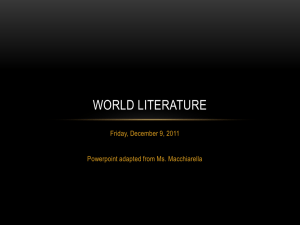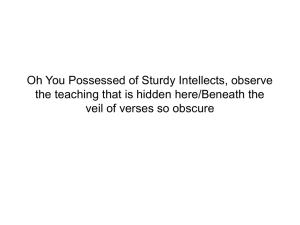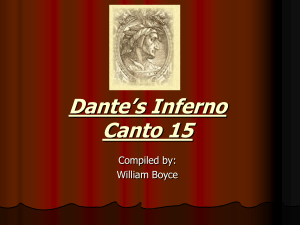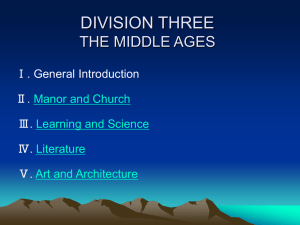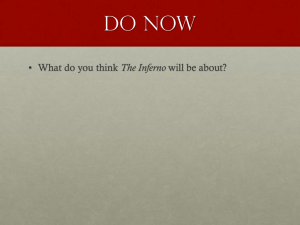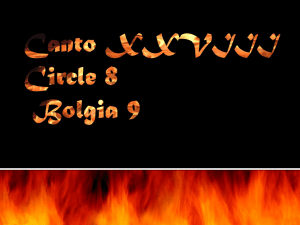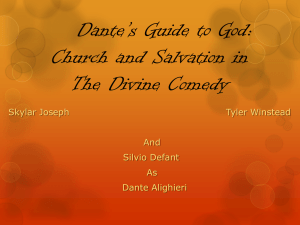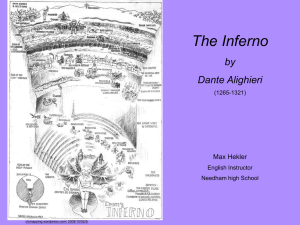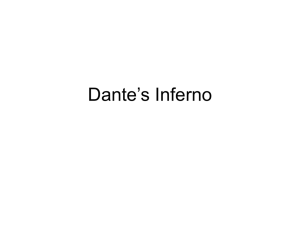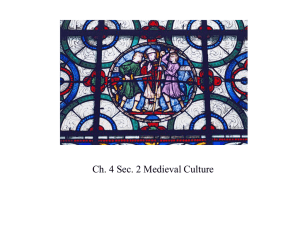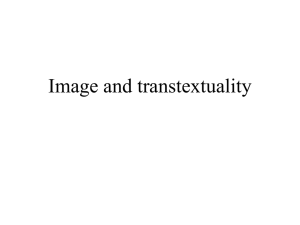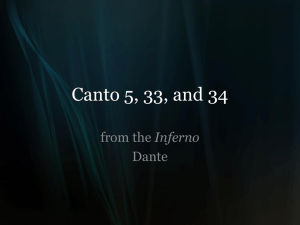Do Now
advertisement
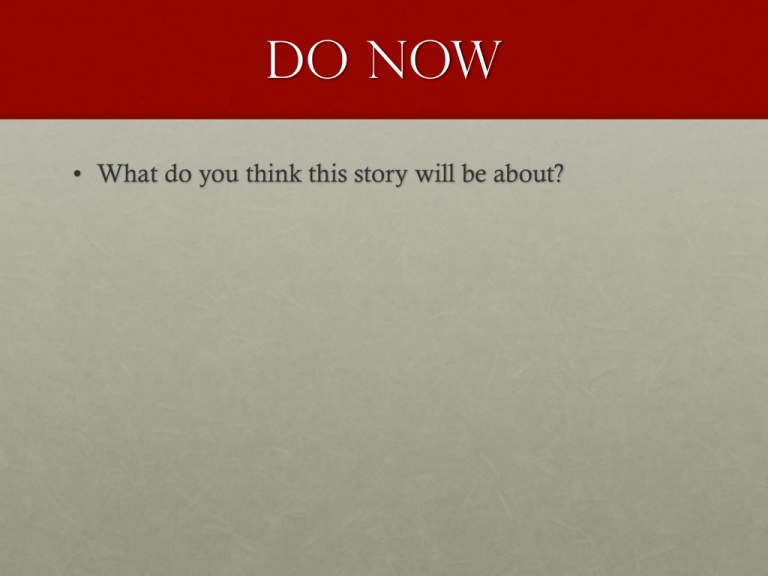
Do Now • What do you think this story will be about? The Inferno Dante Alighieri Dante • Dante was born into a poor but noble family in Florence, Italy in 1265. • Italy was a collection of independent city-states at the time, not a unified country. • As a member of nobility, he was an elected official and ran Florence’s government. • A civil war broke out in 1300, and his political party was exiled in 1302. • Dante never returned to his beloved city. • This exile would play an important role in his later writing. Dante • It is believed that Dante studied law and rhetoric at the University of Bologna, a prestigious institution. • It also boasted a great poetic tradition, which affected Dante’s interest in poetry. • Dante wrote in Italian, while most wrote in Latin. • In 1304, Dante published De Vulgari Eloquentia. • Here, he argued for the use of common tongue in works of literature. • In 1321, shortly after completing The Paradiso, Dante died in the city of Ravenna in northern Italy. The Power Of three • Shortly before his death, he completed Commedia, which would later gain the title Divina, which we now know as The Divine Comedy. • Dante used the number three, which represents the Christian concept of the Trinity, to organize The Divine Comedy. • The poem consists of 100 cantos and is divided into three parts: • The Inferno • The Purgatorio • The Paradiso The Power of Three • Each part of The Divine Comedy contains thirty-three cantos. • There is also an introductory first canto for The Inferno, the only one that takes place on Earth. • Dante’s journey also takes three days – Good Friday, Holy Saturday, and Easter Sunday. Rhyme Scheme • Within each canto, the verse form is terza rima, a stanza of three lines. Literary Terms • An allegory is a literary work with two levels of meaning – the literal and the symbolic. • Every detail, character, and plot point has an equivalent symbolic meaning. • The Divine Comedy is a complex allegory in which a literal journey symbolizes a man’s struggle for redemption. • Imagery is the use of language that appeals to one or more of the five senses and creates mental pictures for the reader. • Dante uses imagery to make the allegorical world of his poem seem tangible and real. LITERARY TERMS • An allusion is a reference within a literary work to something outside the work. • Allusions are a kind of literary shorthand because they quickly add layers of meaning. • Characterization is the art of revealing a character. There are two main types of characterization. • In direct characterization, a writer simply tells the reader what a character is like. • In indirect characterization, a writer suggests what a character is like by showing what the character says or does, what other characters say about him or her, or how other characters behave toward him or her. Themes • God’s justice • Warning against evil • Not an in-depth look, just teaching and reinforcing • Reputation and immortality Classwork • Complete classwork worksheet. Homework • Read Canto I on pages 613-618 of the literature textbook, and answer the corresponding questions. Do Now • Does Dante the character seem like a real man on a real journey, or does the situation presented in Canto I seem like a fantasy? Explain. Canto I • Which part of Dante’s experience in the Dark Wood did you find the most frightening? Explain. • What emotion or idea does each of the three beasts represent? Why is each beast an appropriate choice for the emotion or idea it represents? • What does the author’s choice of rescuer and guide reveal about Dante’s values? • Based on his thoughts, emotions, and actions thus far, how would you describe Dante’s character? Classwork • Complete classwork worksheet. Homework • Read Canto III on pages 619-625 of the literature textbook, and answer the corresponding questions. Do Now • Do you think that the Opportunists deserve the punishment Dante envisioned for them? Why or why not? Canto III • According to the inscription above the Gate of Hell, all hope must be abandoned upon entering. What effect do you think Dante intends this passage to have on the reader? Explain. • Wasps, hornets, worms, and maggots torment the Opportunists. In what ways do these small but fierce creatures suggest Dante’s attitude toward the sins of the Opportunists? Explain. • Why do you think Dante dwells on the physical torments of Hell? • What message does Canto III provide about those who will not or cannot make a commitment to God? Explain. Classwork • Complete classwork worksheet. Homework • Read Canto V on pages 629-636 of the literature textbook, and answer the corresponding questions. Do Now • Do you share Dante’s sympathy for Paolo and Francesca? Why or why not? Canto V • In what ways does the punishment of the lustful match their sins? Explain. • In Lines 55-67, note words and phrases that liken sensual indulgence to madness. • What kind of love does Dante condemn in Canto V? • Why does Dante feel pity and confusion in Line 72? • What does Dante suggest about the effects of certain kinds of literature? Do you agree with Dante’s assessment? Classwork • Complete classwork worksheet. Homework • Read Canto XXXIV on pages 637-644 of the literature textbook, and answer the corresponding questions. Do Now • Which aspect of the ninth circle of Hell do you find the most horrible? Why? Canto XXXIV • In Lines 22-23, what does Dante say he cannot write or describe? How does he succeed nevertheless in communicating his experience? • Who are the three figures in Satan’s mouth? What sin do all three have in common? Why do you think Dante chooses to situate the punishment for such sin in a frozen lake? • In Line 66, which aspect of Brutus’s suffering does Virgil emphasize? Why might language be denied to the inhabitants of the ninth circle of Hell? • In what ways do you think Dante the character’s feelings have changed since the beginning of The Inferno? What message about tolerance for sin might Dante the poet be expressing through his character’s emotional evolution? Classwork • Complete classwork worksheet. Homework • Study for test on The Inferno.
